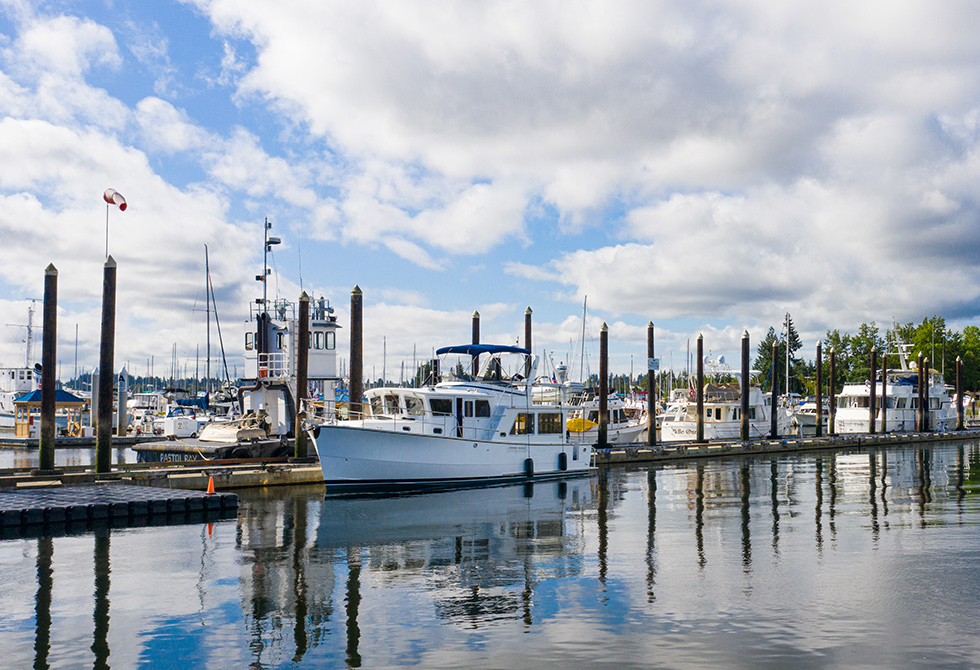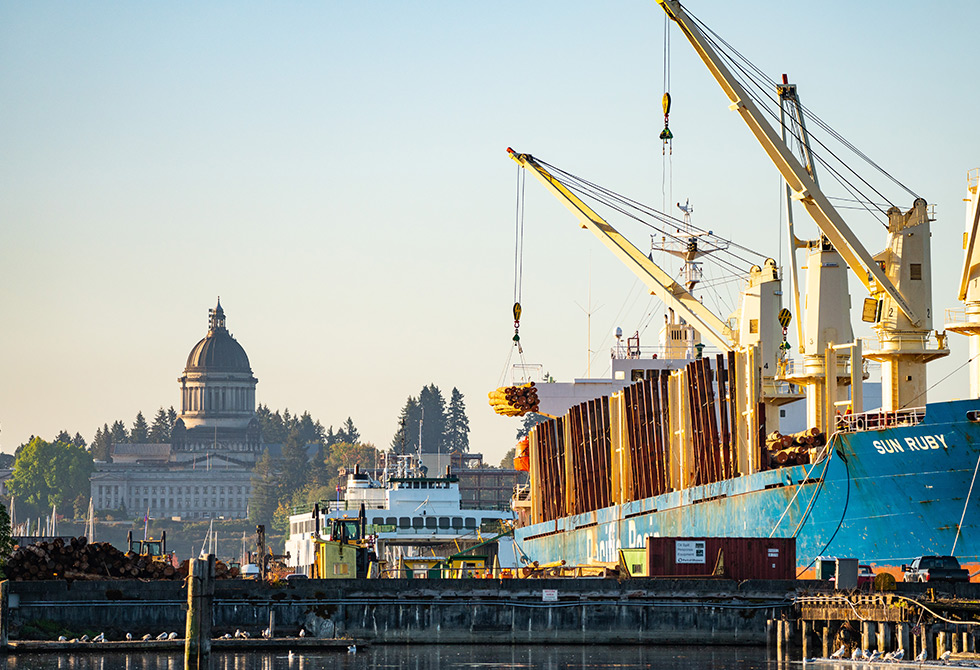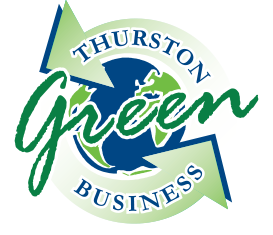Regulatory Compliance

Overview
Stormwater Management
The purpose of Port of Olympia’s is to prevent, reduce and eliminate the discharge of pollutants into Puget Sound.
Federal and state water quality laws require a permit for discharges of rainwater and snowmelt into lakes, streams and other bodies of water. In addition to maintaining four stormwater permits, issued by Washington Department of Ecology, the Port goes above and beyond what is required as part of the Clean Water Act to ensure the compliance, safety, and environmental stewardship of Budd Inlet and our marine ecosystem.
Our coordinated approach involves regular coordination with our industrial tenants, extensive oversight and maintenance from a skilled team of professionals, a state-of-the-art chemical treatment facility and the latest Geographic Infrastructure System mapping (GIS) technology.
How the Port’s Marine Terminal Stays Compliant and Clean

Air Quality
The Port of Olympia’s Marine Terminal maintains air quality permits through the Olympic Regional Clean Air Agency (ORCAA) for stationary sources of air emissions and to ensure proper handling of cargoes that may produce dust. While these permits are legally mandatory, it is important to us that permits, and best management practices be in place to ensure there are no negative impacts to either the environment or the employees that work on the Marine Terminal.
Learn More
State Environmental Policy Act (SEPA)
The State Environmental Policy Act (SEPA) provides a way to identify possible environmental impacts that may result from governmental decisions. These decisions may be related to issuing permits for private projects, constructing public facilities, or adopting regulations, policies, or plans. Information provided during the SEPA review process helps agency decision-makers, applicants, and the public understand how a proposal will affect the environment. This information can be used to change a proposal to reduce possible impacts, or to condition or deny a proposal when adverse environmental impacts are identified.
In 2019, the Port entered into an Interlocal Agreement (ILA) with the City of Tumwater pursuant to RCW 39.34.080. The ILA provided that for “project actions” (as defined in WAC 197-11-704(a)(2)) on Port property in Tumwater (outside the Airport’s Air Operations Area), the City of Tumwater serves as lead agency for SEPA.
The ILA is consistent with Tumwater Municipal Code 16.04.070 and SEPA (WAC 197-11-942), which both authorize a single agency or government to serve as SEPA lead agency for projects multiple jurisdictions have a role in – as long as all the involved jurisdictions agree.
This type of agreement has proven to be more efficient for the participating agencies while also resulting in more consistent outcomes.
More information is available on the SEPA process on the Department of Ecology’s website. If you have questions or would like additional information on SEPA at the Port of Olympia, please contact the Environmental Programs staff.
Learn More
Resolution 2015-12
On September 28, 2015, the Port of Olympia Commission adopted Resolution 2015-12, which revised the Port’s State Environmental Policy Act (SEPA) policy. The revisions include:
- Additional time to file administrative appeals of Port SEPA decisions;
- Procedures for requesting clarification or reconsideration of a Hearing Examiner’s decision of a SEPA appeal;
- Additional clarity around appeal procedures; and
- Adoption of a Climate Change Addendum to the SEPA policy that requires the Port to consider greenhouse gas emissions and the effect of climate change on proposed Port actions in the SEPA environmental review.




